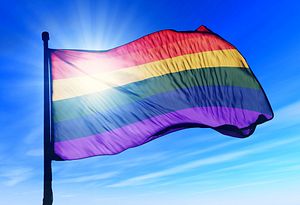In a decision that has grabbed civil rights activists’ attention, Vietnam announced last week it would not legally recognize cohabiting same-sex couples. In a less surprising move, the National Assembly (NA) Committee for Social Affairs also rejected calls to legalize gay marriage.
The decisions, announced by committee chairwoman Truong Thi Mai last Tuesday, mark a significant win for the Vietnamese government’s conservative forces, including the Women’s Union, who have fought behind the scenes against even the most basic legal provisions designed to prevent LGBT discrimination.
As previously noted, Vietnam has seen a rapid change in societal attitudes toward LGBT issues over the last several years. It was only two years ago that Hanoi held its first gay pride event, and national surveys released this year show that a majority of Vietnamese supported legal rights for gay couples.
However, in a surprise move, the NA has halted progress on the issue. Its latest draft of the amended Law on Marriage and Family rejects the proposed Article 16, which would have recognized same-sex cohabitation and joint custody.
The government’s more liberal elements, including the Ministries of Justice and Health, argued that such amendments were needed to end the justice system’s confusion over how to resolve property and custody disputes between separating same-sex couples.
In a heated statement released the next day, Vietnam’s preeminent civil rights organization, The Institute for Studies of Society, Economy and Environment (iSEE), slammed the decision, saying the new bill “lags behind current public opinion” and will prolong discrimination.
“By removing Article 16, the Draft Law has abandoned millions of homosexual, bisexual and transgender people, leaving them to face social stigma, discrimination, and violence,” the iSEE statement said.
“With the removal of Article 16, [which] stipulates the settlement of legal consequences of same-sex couples, the Draft Law of Marriage and Family maintains the discrimination against LGBT people and their families, failing to protect the children born to or adopted by families with two fathers or two mothers.”
Speaking via email, iSEE director Le Quang Binh said the decision ignored “the request for equality and protection of LGBTs in Vietnam as well as the social support for LGBT rights.”
The issue remains unsettled, however. The final vote in the NA will occur on June 19, and gay rights activists say they will push to have the controversial Article 16 reinstated. However, if these efforts fail, they will have around three years to push for incremental changes in the Decrees that will be written to guide the amended law’s implementation.
No doubt gay rights activists will also be turning to the international community for support in highlighting the government’s sudden about-face. Hanoi has recently scored points on the world stage by signaling shifts in its stance on gay rights issues. The U.S. and a host of other nations have applauded Vietnam’s increasingly progressive attitudes, which were displayed when the country’s U.N. Ambassador Nguyen Trung Thanh called for greater protection of LGBT rights during a March session of the Human Rights Council.
However, the NA’s latest decisions show that, as is the norm in Vietnam, movement should never be confused with action.
David Mann is a Hanoi-based freelance journalist.

































